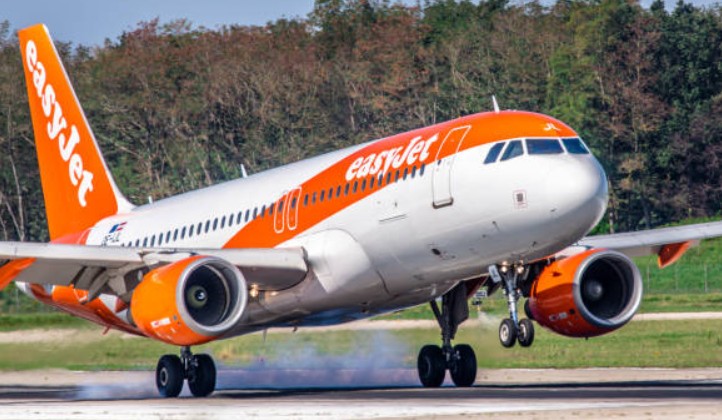EasyJet, the UK’s cherished orange- and-white carrier, is celebrating three decades of changing the way Britain and Europe trip. What began as a bold idea in 1995 has evolved into a global low-cost success story.
A Humble Start at Luton
It all started on 10 November 1995. One plane. One route. Luton to Glasgow. And one young entrepreneur with a daring vision, Sir Stelios Haji-Ioannou.
Just 28 years old, Stelios had studied the American aviation model and spotted an opportunity. The name “EasyJet”, as he once joked, was scribbled on a napkin, a simple idea that would soon become a household brand.
At first, few believed it would work. Luton wasn’t exactly Heathrow. But its lower operating costs made it the perfect launchpad for a no-frills airline that put value before luxury. With only 77 employees, EasyJet took off.
Three Decades of Growth
Fast forward thirty years, and EasyJet is a European powerhouse.
- Fleet: 356 aircraft.
- Routes: Over 1,200 across Europe and beyond.
- Staff: Around 19,000 globally, with nearly 4,000 based in Luton.
What was once a daring gamble has become a defining success story of modern air travel.
EasyJet Takes the Spotlight
The airline didn’t just grow; it became a cultural icon. ITV’s hit 1990s documentary “Airline” catapulted EasyJet into living rooms across Britain.
The show offered a raw, unfiltered look behind the check-in counters and tarmac chaos. “It was fast-paced, unpredictable, and full of energy,” recalled Jane Boulton, a former check-in supervisor featured in the series. The show humanised the brand, and travellers loved it.
From Luxury to Everyday Travel
Air travel was once a luxury for the few. EasyJet, along with other budget carriers, rewrote that story. Now, weekends in Paris or spontaneous trips to Prague are normal for many Britons.
“EasyJet has democratised air travel,” said Cathy Adams, Travel Editor at The Sunday Times. “They turned the extraordinary into the everyday.”
Original MP Rachel Hopkins praised the airline’s continuing impact on Luton, saying it has brought jobs, occasions, and affordable trip options to the community.
The Sustainability Flight Plan
Still, EasyJet’s success hasn’t come without scrutiny. Environmental campaigners have raised alarms about the carbon footprint of aviation.
Former pilot George Hibberd warned, “Aviation contributes significantly to carbon emissions.” EasyJet’s reported eight million tonnes of annual greenhouse gases highlight the scale of the challenge.
In response, the airline has pledged to achieve net-zero emissions by 2050, a bold goal that critics say will depend on breakthroughs in cleaner technology.
Looking ahead, EasyJet isn’t slowing down. New bases are set to open in Newcastle and Marrakech by 2026, signalling confidence in both the UK and global markets.
Travellers are already eyeing upcoming summer 2026 flight deals, as demand for affordable getaways continues to rise.
Chief Operating Officer Captain David Morgan reaffirmed the airline’s mission: “We’re focused on efficiency, sustainability, and making air travel accessible to everyone.”
As EasyJet celebrates 30 years in the skies, its orange spurs remain symbols of freedom, affordability, and British imagination. From a single flight out of Luton to a network gauging the mainlands, it’s been quite the trip.






